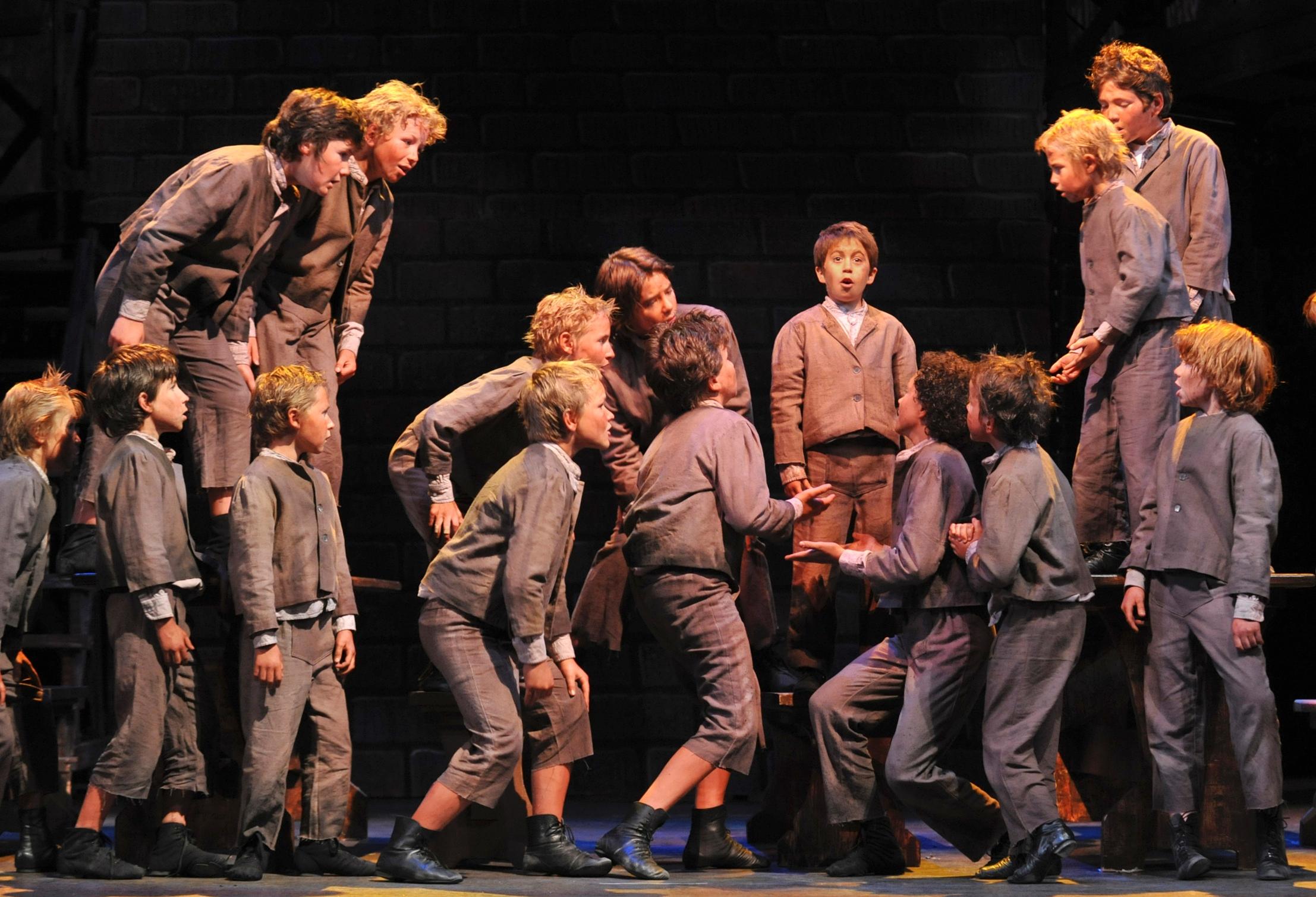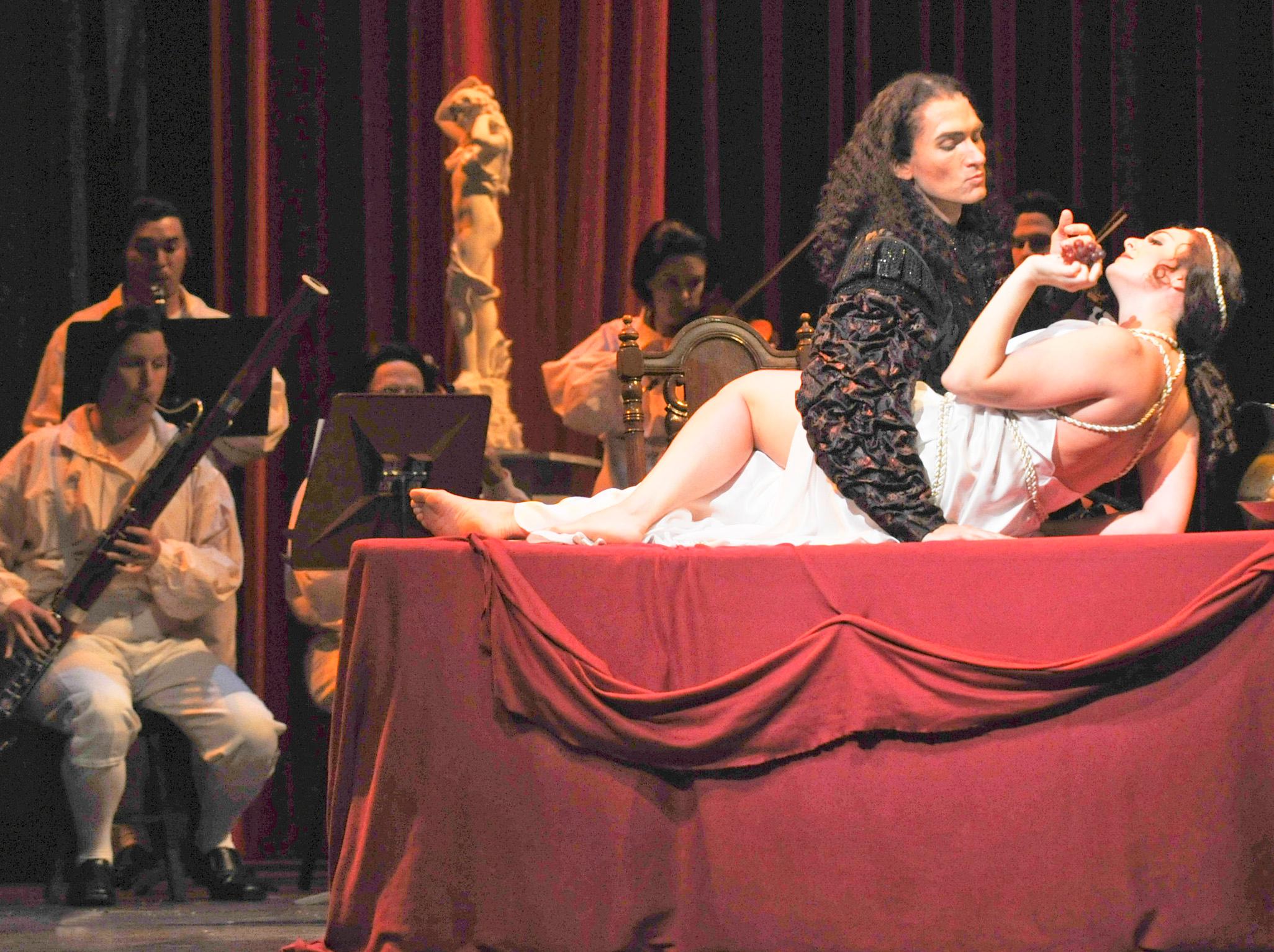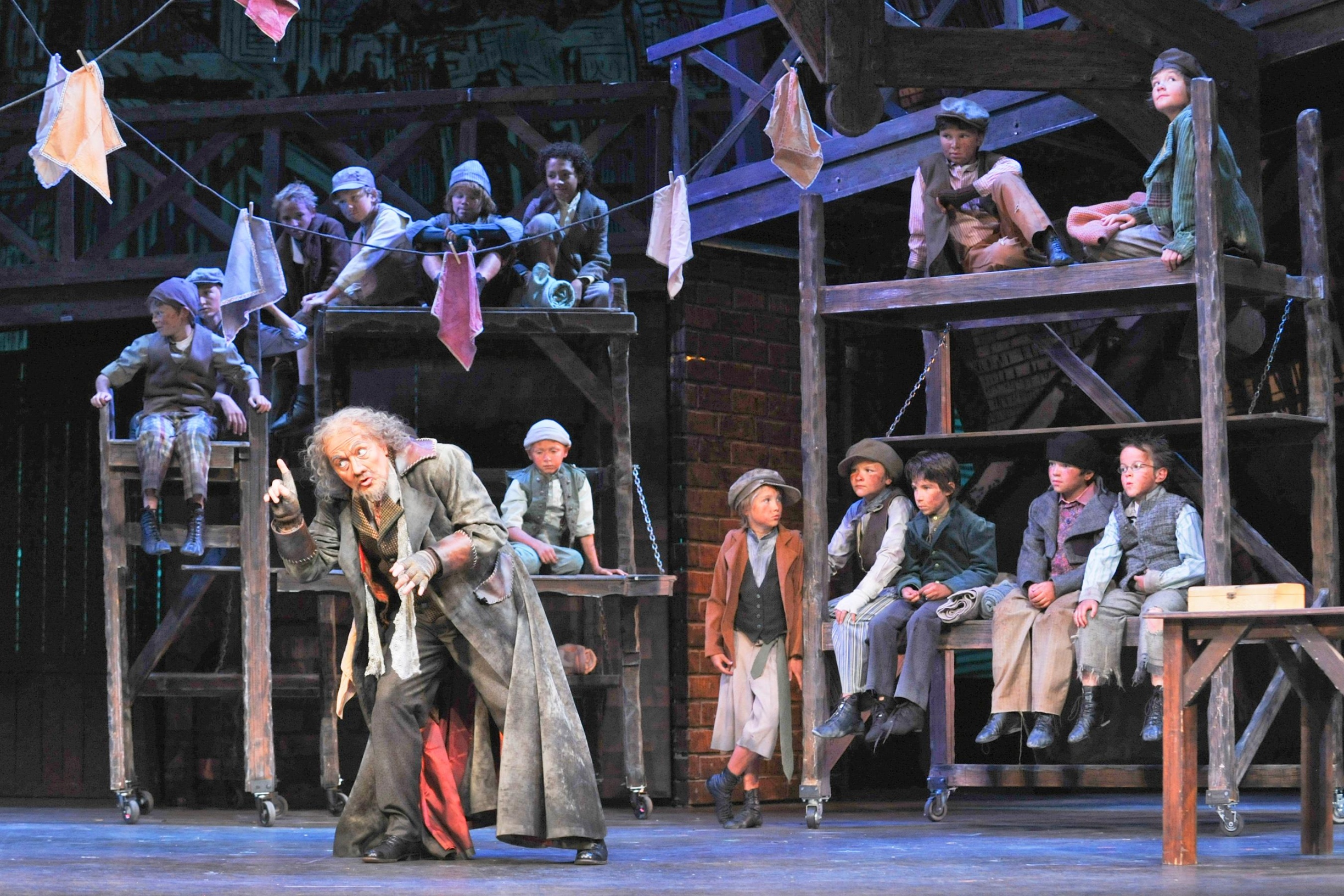REVIEW: ‘Giovanni,’ ‘Oliver!’ give strong openings to UFOMT season
A strong theme of redemption and the ultimate demise of evil and triumph of good is played out in the four major offerings of the Utah Festival Opera and Musical Theatre this summer.
DON GIOVANNI
Mozart’s examination of the Don Juan legend — one of hundreds of songs, movies, plays and literary works that use the Spanish lover as a springboard — opens the season. “Don Giovanni” is often classified as a comedy, though dramatic and even ominous supernatural elements are liberally sprinkled, particularly in the second of two acts.
Some believe the story is also sprinkled with elements of Mozart’s own life, including his relationship with an overbearing father whom did not approve of his wonderlust.
The UFOC production, thankfully, is sprinkled with several strong supporting characters and performers that keep the opera very much in the “should see” category.
The show begins with Leporello, Don Juan/Don Giovanni’s servant, lamenting how he is called upon to only watch and warn for his arrogant, amorous nobleman. Leporello (portrayed by Stephanos Tsirakoglou) is a character woven throughout the two acts, called upon to even switch costumes with Giovanni when the licentious nobleman needs to make an escape or new conquest.
Tsirakoglou is perfect as the comedic release in the production, using facial expressions and movements as he mocks his master. His voice is strong and interesting. His comedic interpretation of Giovanni (as the master serenades while hidden and the servant poses as lover in the courtyard) is a strong opening for the second act.
As Giovanni, UFOC veteran Mark Womack — who last season was seen leading the VonTrapp family over the Alps in “The Sound of Music” and dancing in the mean streets in “Guys and Dolls” — looks and plays the part well. His movements and attitude are as slick as the silk that lines his black cape and black heart. His self-centered debauchery is played well enough to make the audience nervous and illicit some congratulatory “boos” at curtain call time.
Stealing the scenes in which she performs, however, is Rochelle Bard, who portrays Donna Anna, whom Don attempts to seduce early in Act 1. Giovanni was interrupted in this conquest, however, by Donna Anna’s father, the Commendatore, and after a swordfight with Giovanni, the father lay dead. Donna Anna meets with her fiance, Don Ottavio (Jordan Bluth) and swears to avenge his blood.
From first appearance to her last, Bard is passionate and emotional and her soprano is full of pain and power. She is a heart-felt delight every time she opens her mouth. Her dynamics are particularly outstanding, from the softest whisper of pain to a strong declaration of revenge. She becomes the strength of the production.
Donna Elvira (Eleni Calenos) is also on the trail of Giovanni, a jilted lover abandoned by Don Giovanni. Calenos is also a strong supporting cast member, playing off of Leporello as he lists the hundreds of conquests of Giovanni, cataloged in a large book. She combines with Ottavio, Donna Anna to become a trio of jilted lovers and the work of these three together is a highlight. Calenos’s soprano is also faultless.
Bluth has a smooth, effortless tenor voice that is easy to listen to, but his actions never quite show the desperation and passion of Calenos and Bard, who both have solos that push the production to a higher level.
Don Giovanni meets up with Leporello in a cemetery, where the comedic aspects of “Don Giovanni” are bumped aside for the more ominous feeling that the narcissistic lover may soon come to an accounting of his deeds. Leporello and Giovanni find themselves making a deal with a seemingly living statue of the Commendatore, which covers his grave. In a deep bass, Kristopher Irmiter proposes that Giovanni invite him to dinner with all of his guests, to which the brash caped lover agrees.
At the final dinner, with the fog machine on full tilt, the Commendatore offers Giovanni one last opportunity to repent, to which he refuses, and the two are then swallowed up into hellfire, the evil lover getting his just end.
“Don Giovanni” is strong in its message and well-carried by the UFOC cast. One irritation on opening night was a bouncy spotlight, however, that never seemed to be able to find its mark and hold it. The orchestra, under the baton of Barbara Day Turner, is vibrant and is coordinated well with the ongoing emotion of the story.
B-plus.
OLIVER!
The story of orphan Oliver Twist is a well-known one, and the Lionel Bart musical has been popular on stage since its premier in 1960, and was made even more well-known thanks to an Oscar-winning film version in 1968.
The UFOMT production is aided tremendously by an engaging set design by Dennis Hassan and though there are many scene changes, each are done efficiently and spiced by conductor Karen Keltner’s interludes. The artistic staff also avoided the bouncing spotlight issues and lighting is much more consistent and added a great deal to the overall design and feel.
The production is also aided tremendously by the presence of Michael Ballam, who portrays Fagin, the grandfatherly leader of a underground gang of young pickpockets. Hunched over in costume and gliding about the stage, Ballam becomes a glue that holds together the 17-or-so preteens that he has under his wing. Productions that are dominated by, well, preteens and children often have a tendency to fade in intensity and consistency, but whether intended or not,
Ballam’s “You’ve Got to Pick a Pocket or Two,” and especially “I’m Reviewing the Situation” were highlights and allowed him to display his talents of voice and movement on stage as the almost-lovable Fagin.
This, and the over-the-top portrayal of ancillary characters, makes the production successful and highly memorable.
Among the characters that play to the crowd and make their time on stage memorable are Mr. Bumble (orphanage worker played by A.J. Glueckert), Widow Corney (Vanessa Schukis), Mr. Sowerberry (an undertaker who buys Oliver from the orphanage, played perfectly by Kevin Nakatani) and Mrs. Sowerberry (undertaker’s wife, played loudly and with a black heart by Laura Quest).
Jessica Medoff also plays a strong Nancy and whose solos are well-staged and dynamic. Scott Russell’s portrayal of Bill Sykes presented a cockney accent that was a bit too thick and hard to follow.
And, of course, there is Oliver himself. Jace Salcido, an 8-year-old-looking 11-year-old from Utah County, shows no nervousness on stage at all and sings his heart out when called upon. Cameron Conrad, a sophomore at Logan High, is also crowd-pleasing as Artful Dodger, though the range of some song’s challenged his voice on the low end of the scale.
Ensemble pieces were strong throughout the production, particularly the bouncy, eye- and ear-pleasing “Who Will Buy?”
“Oliver!” is a crowd-pleasing effort — no doubt due in part to the number of local boys on stage — and a curtain call that becomes almost a major part of the production reinforces the pleasure the audience had in receiving this classic Dickens tale put to music.
A-minus.

Jace Salcido is Oliver Twist. (Photo by Karen Almond, UFOMT)

Mark Womack, as Don Giovanni, tries to make a conquest. (Karen Almond photo)

